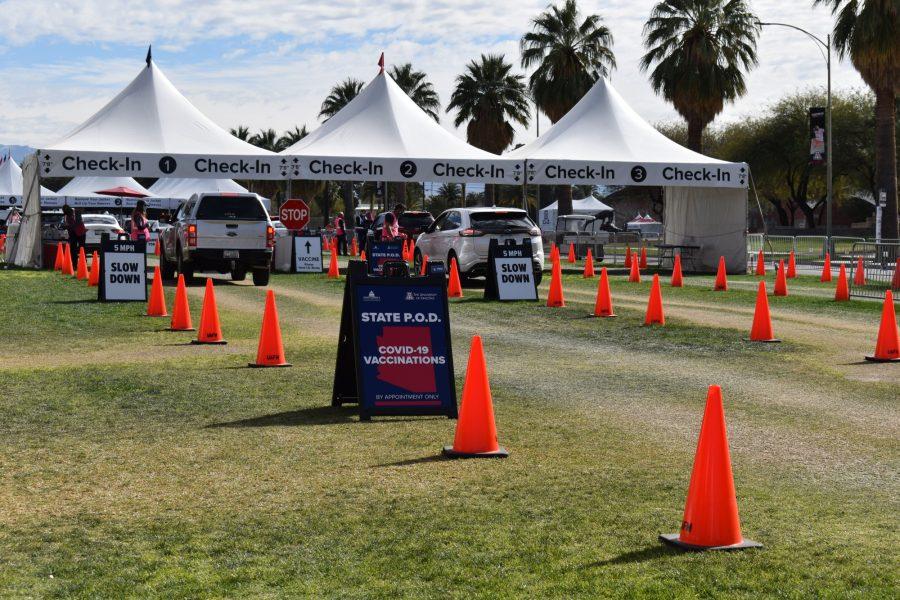Due to the University of Arizona becoming a high-capacity state vaccination site, the two on-campus clinics now operate from 10 a.m. to 10 p.m. daily with the goal of eventually operating 24/7.
According to UA’s COVID-19 Vaccination Task Force, the site relies heavily on volunteers. Even though over 4,000 volunteers are registered already, the clinics will need a steady stream of volunteers for the next several months.
“While we have a lot of interest right now, interest can fade,” said Kristen Pogreba-Brown, an assistant professor of epidemiology at the UA’s Mel and Enid Zuckerman College of Public Health and an organizer of the task force’s volunteer campaign. “We are really going to need volunteers at least until June, so even if you sign up and don’t get a shift right away, don’t despair.”
Because of the huge community response to help out, an email sent to registered volunteers urged them to “select no more than three shifts per week” in order to create more opportunities for as many people as possible.
As stated on the College of Public Health’s volunteer webpage, volunteers also “have a chance to be vaccinated” themselves, and many have already.
“They can add their name to a list after their first shift,” Pogreba-Brown said, “and after they have worked 36 hours, we put them on the list to be vaccinated, ideally that day, but it may depend on how many doses are available.”
Alyssa Zapien, a UA junior studying neuroscience, said that she continued to volunteer even after receiving the vaccine after her fourth shift in early February.
“My experience so far has been pretty great,” Zapien said. “Everyone is super nice and helpful. All of the training is incredibly easy … and there are always people there that have volunteered before who are happy to help.”
Even though Liam Duffy, a UA junior studying music education, gave up some shifts to give more people opportunities to get vaccinated, he also continued to volunteer after receiving the first dose himself.
“I wanted to be able to help in some capacity with the pandemic and this was an easy and accessible way to help my own community,” Duffy said.
When the clinics eventually run 24/7, Pogreba-Brown said she anticipates that both the number of appointments and volunteer shifts will likely be less than those during the day, but people will still be needed to help out nonetheless.
“You can pick out shifts that work with your schedule when you sign up,” Zapien said, “and the sign up process is super easy.”
Duffy also said that the non-medical volunteer jobs are easy to do and they don’t take more than about five minutes to learn.
“And we need far more non-medical volunteers than medical,” Pogreba-Brown said, “so anyone really can sign up to help.”
To find out more information, visit the main UA Point of Distribution volunteer webpage or fill out the volunteer registration form to learn about the job descriptions and how to pick shifts at redcap.link/volunteer.
Follow JT Thorpe on Twitter








